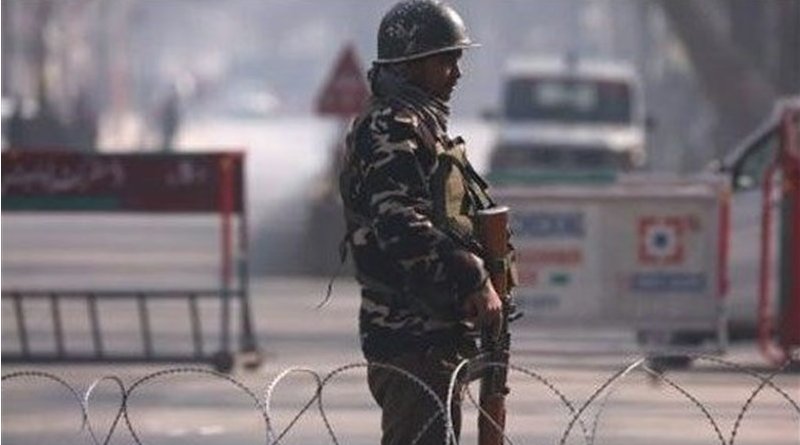Kashmiri Pandits And J&K Reorganisation – Analysis
By IPCS
By Shivangi Seth*
In early 2019, India’s Prime Minister Narendra Modi remarked about the injustice of the 1990 Kashmiri Pandit (KP) exodus and reiterated his commitment towards facilitating their dignified return to Kashmir. After Article 370 was abrogated in late 2019, he promised a US-based KP delegation the creation of a “new Kashmir” for all. At this juncture, it is pertinent to examine how the Jammu and Kashmir Reorganisation Act, 2019, impacts three key KP grievances: encroachment of their immovable property; prospects of return; and accountability of the perpetrators of the exodus.
Protection of Property
A law to protect KP properties post the exodus has existed since 1997, but due to poor implementation, it has negatively impacted KPs who were unable to claim their properties encroached by locals and local administration, as well as resident locals who were often wrongfully evicted. The Jammu and Kashmir Migrant Immovable Property (Preservation, Protection and Restraint On Distress Sales) Act 1997 aims to protect properties of migrants who had left the state after 1 November 1989 due to “disturbed conditions.” However, the Migrant Property Act’s effectiveness has been under question. For example, in 2017, J&K’s Minister for Disaster Management Relief, Rehabilitation and Reconstruction disclosed that of the 210 complaints filed by KPs regarding encroachment of their properties, the state government had addressed only five cases under the Migrant Property Act. Meanwhile, in other cases, resident locals contested their eviction under the Act, arguing that the properties in question in those cases did not satisfy the Act’s definition of ‘migrant property’.
Due to poor implementation, the Act often proved unavailing for KPs, and for resident locals, a tool for the administrationto seize their properties. Per the Jammu and Kashmir Reorganisation Act, 2019, the Migrant Property Act remains in force in the Union Territory (UT) of J&K, and the UT status enables New Delhi to ensure the law’s just implementation towards curbing illegal encroachment of KP properties as well as wrongful eviction of resident locals.
Prospects of Return
Article 370 defined permanent residents (PR) of the state as well as their attendant rights. As PRs, there was no legal obstacle to KPs’ prospects of returning to Kashmir. However, various government policies to this end have been ineffectual due to other factors.
According to India’s Ministry of Home Affairs, till November 2015, only one family had availed the assistance of INR 7.5 lakh for constructing a house under the UPA government’s 2008 return and rehabilitation package for Kashmiri migrants. In 2014, India’s then Finance Minister, Arun Jaitley, announced a special package of INR 500 crore for KP rehabilitation. In 2017, Indian Home Minister Rajnath Singh’s announcement of the construction of 6,000 transit homes for KPs in composite townships in Kashmir was opposed by Kashmiri political parties as well as the separatists, who accused New Delhi of constructing Israel-style settlements.
Threat of violence too has impeded the prospects of KPs’ return. For example, in the pre-reorganisation period, between 2008 and 2015, over 1500 educated, displaced KP youth were provided with employment in Kashmir under a prime minister’s job package. However, following stone pelting on KP camps in July 2016 after Hizbul Mujahideen Commander, Burhan Wani’s killing, many fled the valley. Security threats to non-migrant KPs and to rehabilitation prospects of displaced KPs are palpable in the post-reorganisation period too. Non-migrant KPs are concerned that backlash over the change in J&K’s status could stoke anger in Kashmir, intensify communal divides, and make them militants’ targets. As long as the security situation remains grim, this impediment will continue to exist in the post-reorganisation period.
Accountability for the Exodus
Even prior to the reorganisation of J&K, legal and executive mechanisms to seek accountability for the exodus existed. However, neither the state government nor the central government diligently pursued an inquiry into it. There have been no comprehensive investigations into the KP exodus or convictions of perpetrators of the 1990 killings of KPs and the ensuing exodus so far.
In 2017, a KP group, ‘Roots in Kashmir’, petitioned the Indian Supreme Court to investigate 215 FIRs of KP killings that took place during 1989-90. The Court dismissed the petition, arguing that evidence was unlikely to be available given how over 27 years had passed. In 2019, Yasin Malik’s Jammu Kashmir Liberation Front (JKLF), which played a role in the exodus, was banned for its militant activities in March; Malik himself was arrested in a terror funding case in April; and Malik’s trial in the 1990 Indian armed forces personnel killings case resumed in September. However, these cases do not pertain to the exodus itself. Furthermore, responses to RTIs filed by India Today in 2019 point to the lack of clarity regarding available records on KP killings and FIRs lodged in 1990.
Post the reorganisation of J&K, New Delhi would have more space and opportunity to investigate the exodus, given how it is now directly responsible for law and order in the UT. However, various administrations’ track record suggests that the protracted delayin holding perpetrators accountable stems more from the lack of political will to concretise promises made to KPs, rather than from the centre-state division of power under Article 370.
Looking Ahead
The J&K Reorganisation Act does not automatically change the prevailing state-of-affairs because its mere existence cannot remedy issues of political will or judicial delays. Measures undertaken during pre-reorganisation period suffered setbacks due to circumstances that have the potential to persist post reorganisation as well. That being said, reorganisation could enable removal of systemic obstacles and thereby have a positive effect towards protection of KP properties, and accountability for the exodus. However, at present, a comprehensive resolution to the three key KP concerns remains contingent upon other factors like militancy and political will.
*Shivangi Seth is a Research Intern with the Centre for Internal and Regional Security at IPCS.

